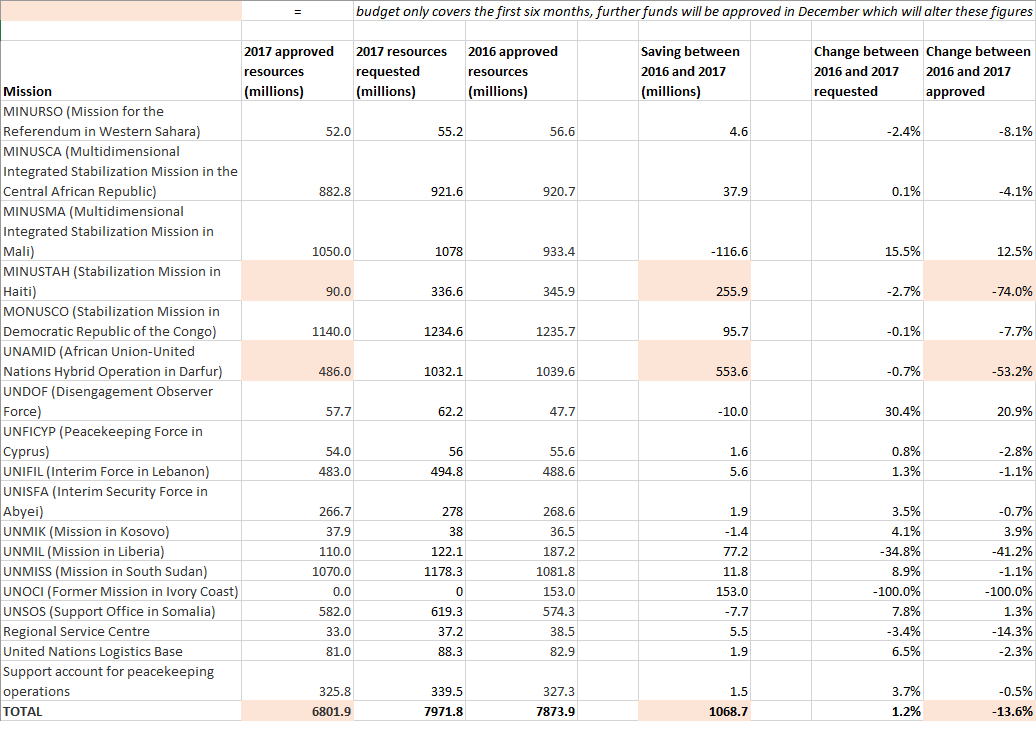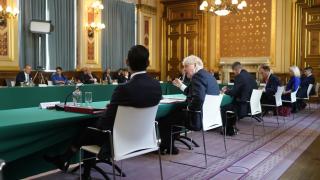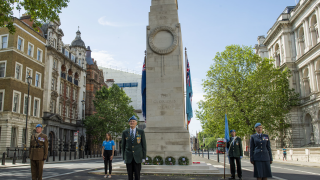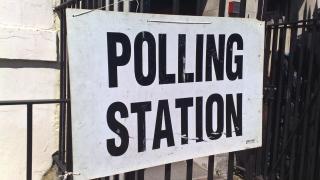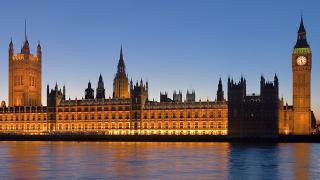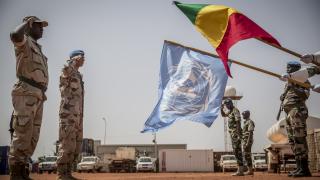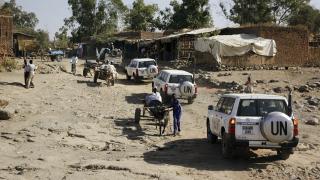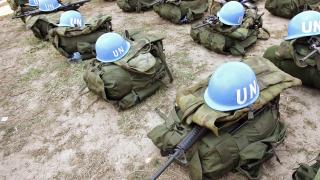
The United Nations General Assembly has agreed a budget for UN Peacekeeping for the following year. The budget will save the UN member states up to a billion dollars, but could place civilians at risk, particularly in Darfur, the Central African Republic, the Democratic Republic of Congo, and South Sudan.
The UN's peacekeeping budget is complex, and was the subject of one of our recent UN briefings. Differences in accounting procedures - particularly when it comes to allocating costs for overall support operations and variations between approved costs and actual costs - make it difficult to produce a divinitive and standardised set of figures. There is also an occasional lack of clarity as to whether cutting a budget, something the US has insisted on, relates to cutting the amounts allocated relative to the amounts allocated the previous year, or relative to the amounts the UN requested for the mission in the coming year. However, based upon the press releases and published papers of the UN General Assembly, UNA-UK has pulled together the following information.
(Click here to download table as a spreadsheet)
It was known that the United States was pushing for a cut of $1 billion. It was widely reported that they had agreed to a compromised budget which contained a smaller $600 million cut. This is, in fact, something of a simplification. As two of the missions - Darfur and Haiti - were only funded for six months and will have to request additional funds following strategic reviews in December, it will not be possible to ascertain the exact scale of cuts until then, but they will be of between $493 million and $1.06 billion depending how much more is cut from Darfur and Haiti's budgets.
Few places to cut
The issue the General Assembly has is that there are few places within Peacekeeping where cuts can safely be made. Cutting the smaller missions does not save very much money, and cutting the bigger missions is very dangerous.
The UN has recently concluded its mission to the Ivory Coast (saving $153 million) and is scaling down its presence in Liberia (where a 41% reduction will save $77 million) and Haiti (where the UN will save up to $256 million, depending how much additional funding is agreed in December). This will save up to $486 million this year, and more in future years. But beyond these missions the cuts become far less straightforward.
It was expected that the UN’s smaller missions (Kosovo, Somalia, Abyei); support programmes; and the longer standing and more traditional ceasefire monitoring missions (Western Sahara, Cyprus, Lebanon, the Golan Heights) would be significantly cut. However, these missions are fairly small and fairly cheap, so savings are fairly minimal. Perhaps for this reason, only Western Sahara (8%) and the UN's Regional Service Centre in Entebbe (14%) saw significant cuts, and the amounts saved were small ($5 million and $6 million). Most other missions and programmes received small cuts of between 1% and 3%. The complex situation in Syria meant that the small Golan Heights based UNDOF (Disengagement Observer Force) received an additional $10 million, boosting its budget by some 21% (although this was well short of the 30% increase they requested). The Mission in Kosovo and the Support Office in Somalia (which is not a peacekeeping mission but is funded from this budget for historical reasons) also requested significant budget increases (4% and 8%) and received more modest ones (4% and 1%). Again the amounts involved were relatively small ($1 million and $8 million).
It should be noted that for historical reasons these budget allocations do not cover the UN's two oldest missions: UNTSO (the United Nations Truce Supervision Organization which provides observers in Sinai and other Israeli border areas) and UNMOGIP (the United Nations Military Observer Group for India and Pakistan - which works in Kashmir). These are funded out of the UN's regular budget.
Complex missions
This means that further cuts have to come from the UN's quintet of large and complex missions in Mali, Darfur, South Sudan, the Democratic Republic of Congo, and the Central African Republic.
Mali
Last year the Multidimensional Integrated Stabilization Mission in Mali (MINUSMA) was the UN's most difficult and lethal mission, as UN Peacekeepers directly combat insurgents. As a consequence, this year the UN requested additional funding - a further $145 million - to shore up the mission. They received most of it: an extra $117 million representing a 13% budget increase.
Central African Republic
The security situation in the Central African Republic is rapidly deteriorating with several very recent fresh fatalities meaning that the mission has now eclipsed Mali as the UN's most lethal. A persistent critique of UN budgetary processes is they are too slow to react to changing circumstances, hence the need for a UN Rapid Reaction Force, an idea which remains stillborn. This was evident in the discussions around the Multidimensional Integrated Stabilization Mission in the Central African Republic (MINUSCA): the UN did not request any additional funding and the General Assembly agreed a 4% cut, an amount which we understand would have been larger had it not been for French lobbying. The mission in the Central African Republic is now in grave peril, and the Security Council will need to act fast to support the mission and the wider peace process in which it sits.
Democratic Republic of Congo
MONUSCO (the Stabilization Mission in Democratic Republic of the Congo) is the UN's largest, most expensive and arguably most complex mission. It will now have to make do with a budget reduced by 8%, or $96 million. Ongoing violence in Kasai Province may require the mission to change priorities and approach. Their ability to do so could be significantly hampered.
Darfur
Regardless of what is decided in December, it seems highly likely that the African Union-United Nations Hybrid Operation in Darfur (UNAMID) will receive significant cuts as troop numbers reduce and the US pushes to ensure total cuts come as close to their $1 billion target as possible. We are greatly concerned as to the effect that this will have on people in Darfur, and have been working with Darfuris and Waging Peace to advance this argument.
South Sudan
At first glance the cuts to the UN Mission in South Sudan (UNMISS) do not seem that significant: $12 million, representing only 1% of the total budget. However, this needs to be viewed in the context of the fact that the UN had requested a significant budget increase. So while the budget may have only fallen slightly relative to last year, it has fallen a full 10% relative to the amount the UN estimates the mission will need in future. Indeed of all the budgets agreed for the full year ahead only the UN's Regional Service Centre in Entebbe suffered a greater percentage reduction relative to what the UN estimated that the mission would need in the coming year (and cuts in Entebbe will also have an impact in South Sudan). It is clear that states did not stand up in the General Assembly to argue for the importance of the UN Mission in South Sudan. As the UK has contributed significant numbers of troops to the mission, it is disappointing they did not play this role.
Cuts and savings
It is right that the UN look to make savings to peacekeeping budgets where it can. But there is a difference between making a long term sustainable reduction in the cost of peacekeeping, and making a short term cut for the sake of a press release if the consequence is to undermine efforts to build peace. Unsustainable cuts will result in greater instability and conflict, and eventually a greater cost. The UN budget negotiations raise significant concerns about the ability of the missions in the Central African Republic, South Sudan and Darfur to perform effectively, and the process followed fails to pay sufficient regard to the developing ground situation or the views and wishes of those most affected: civilians of the countries in question.
An approach which allowed for greater flexibility, where missions could more dynamically scale up and down in response to changing circumstances, and a Rapid Reaction Force that could be deployed in the event of an emerging crisis such as that in the Central African Republic, could save money in both the long and short term.
The UN does itself no favours with opaque budgetary procedures and ambiguous figures, but the final responsibility for ensuring that Peacekeeping works and is funded lies with member states. It is a responsibility they must live up to.
UPDATE
In December the UN approved a further $88 million for the UN Mission in Haiti (MINUJUSTH) and a further $425 million for the UN Mission in Darfur (UNAMID - bringing the total budget to $911 million). The overall peacekeeping budget for the year is therefore $7.316 billion, a cut of around $600 million (as expected) or 7.5%

